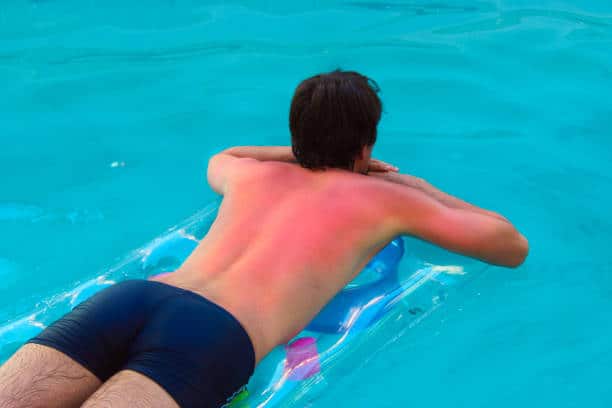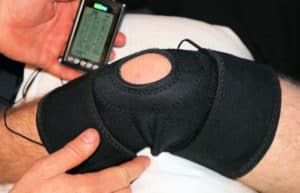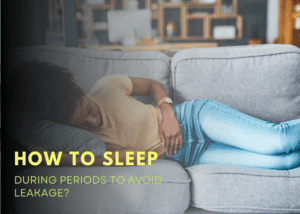Do people who have naturally dark skin get sunburn? Can medications alter the way your skin reacts to the sun?
Even people with dark skin can get sunburned if exposed to too much ultraviolet light, though those with fairer skin are more likely to get sunburned. A variety of medications, including some antibiotics, Ibuprofen, and doxycycline, can affect your skin’s sensitivity to UV light and cause you to burn easier.
How can you sleep with sunburn on your back?

Use painkillers and cold compresses. You will experience sunburn to a lesser or greater degree at some time in your life, but sunburn on the back can be troublesome as the weight of clothing pulls down on the skin, causing pain and discomfort.
It may be tempting to try a cold shower, but it will work better to use cold compresses such as a damp towel that may have been placed in a refrigerator icebox for 15 minutes.
A cold compress gives pain relief before bed and should make you sleep easier when used with over-the-counter painkillers.
Sleep naked if possible. If not, wear a light cotton top that can breathe and allow some airflow.
Keep your bedroom on the cooler side. This will help to remove some of the latent heat from the burn.
What helps bad sunburn on the back?
Keep hydrated with water, and don’t drink alcohol. There are some steps you can take to soothe the symptoms of sunburn.
Here are some common-sense tips to help you through the night:
- Try to remove the burning sensation from the skin by taking frequent cool showers or baths, have the water on the cooler side, and be cold if you can withstand it. Make sure you pat yourself dry and not rub the burnt skin with a towel when you are done. Apply a skin moisturizer while your skin is damp. This will help trap the water, which will help to keep your skin hydrated and supple.
- Only use a moisturizer that contains Aloe Vera or Soy. Both natural substances will help to hydrate your skin and have therapeutic benefits for pain relief from sun exposure. Don’t treat sunburn with “caine” like benzocaine cream. They are aggressive and will dry the skin out.
- Use over-the-counter painkillers such as Ibuprofen. Ibuprofen helps to reduce inflammation and is an effective painkiller.
- Keep dehydrated. Sunburn depletes the water in your body, so keep drinking water through the day and night if needed to prevent you from becoming dehydrated.
- Don’t pop blisters. They are your body’s defense mechanism against infections to the skin. If you have blisters on your back or shoulder, you have a more serious second-degree burn from sun exposure.
- When venturing outdoors into the sun, wear suitable clothing that is UV resistant. You can get sunburn through a cotton shirt, so be careful. If you hold your shirt to bright light and you can see the weave, then it’s not suitable for wearing outdoors while you are sunburnt.
When does sunburn peak?
24 hours to 36 hours. When being in the sun, it can be hard to assess if you are being sunburnt or not, and redness is hard to detect until it’s too late.
For the average person, 4 hours in the sun with or without sunblock is too much UV exposure, so you should plan to be in the shade or indoors.
Sunburn will get incrementally worse for the first 24 to 36 hours, so refrain from being exposed to the sun. You may need to take a break or find an indoor activity to pursue until your sunburn subsides.
Why do sunburns get worse at night?
Lying down with sunburn causes the skin to be stretched, resulting in soreness. The fact is sunburn gets progressively worse as the hours pass up to 3 days later, so lying in bed will put your skin in direct contact with a harsh surface.
In addition, most people move around in their sleep, which inadvertently stretches the skin resulting in pain or soreness.
How can I make my sunburn heal faster?
Keep hydrated, and use moisturizers. Sunburn can be debilitating and ruin a holiday experience, so taking care of your sunburn is a priority.
Here are 4 tips that may help your sunburn to heal faster:
- Shower or frequently bathe in cool water. This will remove some heat from the burns and relieve the pain.
- Moisturiser with aloe vera-based moisturizers when your skin is still wet or damp to try and lock in the moisture.
- Using NSAIDs such as Ibuprofen, Ibuprofen will help to reduce inflammation and redness.
- Drink plenty of weather. Sunburn will increase your body temperature and make you sweat more. In addition, sunburn draws moisture from the skin. Keeping hydrated is vitally important to a fast recovery.
Does milk help sunburn?
If applied to the skin, yes. This may sound weird, but milk does help sunburn. And not in the way you are thinking.
Of course, you can drink the milk, which is perfectly fine, but if you soak a cloth in cold milk and apply it to the sunburn area, the antioxidants in milk can reduce the redness from the sunburn.
Cold milk will provide a soothing cold compress with other benefits from its compounds.
Does Vaseline make sunburn worse?
Yes. Many of the old wife’s tales of treating sunburn with household items like petroleum jelly and butter are just utter nonsense and can make the symptoms worse and prevent speedy healing.
If you have severe sunburn, you may need to consult your health worker or a pharmacist for advice on the best products. You may be prescribed Hydrocortisone cream, which will help with the healing process.
Is swimming in the sea good for sunburn?
Swimming in the sea may provide some temporary relief from the discomfort associated with sunburn, as the cool water can help to soothe your skin and reduce redness. However, it is generally not recommended to swim in the sea or in a pool if you have severe sunburn, as the chlorinated water in pools or the salt water in the sea can further irritate your skin and potentially cause further damage.
If you have sunburn, it is important to take steps to protect your skin and help it heal. Some recommended actions include:
- Stay out of the sun: Avoid further exposure to the sun while your skin is healing.
- Cool your skin: Take a cool bath or use cool compresses to help reduce redness and inflammation.
- Moisturize: Use a moisturizer to help soothe and hydrate your skin. Avoid products that contain alcohol or fragrances, as these can be irritating.
- Protect your skin: Wear loose, cool clothing to protect your skin from further irritation.
It is also important to drink plenty of fluids, as sunburn can cause dehydration. If your sunburn is severe or if you have any other concerns, it is a good idea to consult with a healthcare professional.





